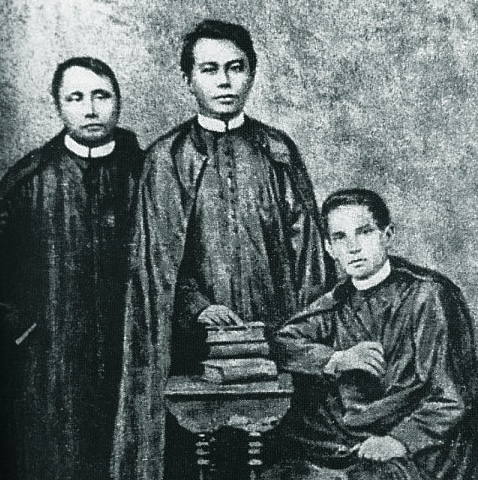Features Lisandro Claudio, associate professor at UC Berkeley.
Grab a copy of Lisandro’s book Liberalism and the Postcolony: Thinking the State in 20th-Century Philippines.

Episode 1
Discusses the islands’ societies before the advent of Spanish colonization in the 16th century, the roots of Filipino nationalism, the Philippines in the context of 19th century Asia, Gomburza and the 1872 Cavite Mutiny, José Rizal, and the leadup to the 1896 Philippine Revolution.
Episode 2
Picks up at the end of the 19th century, the time of the Philippines’ independence struggle. The crew touches on La Liga Filipina and its revolutionary successor groups, the Philippine Revolution itself, figures like José Rizal and Emilio Aguinaldo, domestic responses in the Philippines to the onset of the Revolution, the rise and fall of the First Philippine Republic, the Philippine-American War, and more.
Episode 3
It’s the dawn of the 20th century and the beginning of American colonial rule. The group touches on William Howard Taft’s tenure as governor of the archipelago, Filipino roles in colonial politics, the Moro Wars on Mindanao and the Sulu Archipelago, the economic relationship between the Philippines and the US mainland, and more until the election of Woodrow Wilson.
Episode 4
Touches on changes by the Wilson administration to US colonial policy toward the Philippines, the “Filipinization” of the archipelago’s bureaucracy, Manuel Quezon and the Nationalist Party, Francis Burton Harris, state building in this period, Philippine reliance on American markets, the colony’s linguistic diversity, and more through the Great Depression.
Episode 5
Picks up at World War 2, exploring life under the Japanese occupation of the archipelago, post-war independence, the Partido Komunista ng Pilipinas (PKP), the Southeast Asia Treaty Organization (SEATO), the Bandung Conference, and more through the administration of Ramon Magsaysay.
Episode 6
It’s now the time of Ferdinand Marcos, with the discussion exploring his origins, role in a broader regional context, declaration of martial law, interaction with student activists, figures like economist Gerardo Sicat and dissident academic Salvador Lopez, the Philippine economy of the 70s and 80s, and more until the end of his rule in 1986.
Episode 7
In this final episode, the group picks up at the end of Ferdinand Marcos’ rule, examining the economic and ideological factors in his downfall, the end of the Cold War in the archipelago, the tenure of president Corazon Aquino, the New People's Army (NPA), and where the US-Philippines relationship stands today.
Contemporary Philippine Politics
For more on Philippine politics from the 80s through the present day, check out this non-series episode.